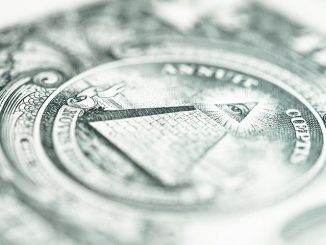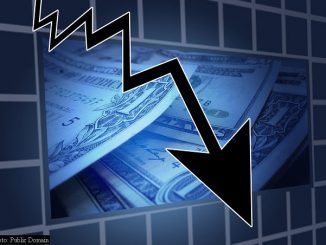
Allianz Chief Economic Adviser Mohamed El-Erian told CBS’ “Face The Nation” Sunday that the Fed “made two big mistakes” which he thinks are “going to go down in the history books” and prompt “a damaging recession that was totally avoidable.”
El-Erian told host Major Garrett that the Fed’s first error was mischaracterizing inflation as transitory.
“By that, they meant it is temporary, it’s reversible, don’t worry about it,” he said.
The second blunder, he added, was when the Fed finally recognized that inflation was both persistent and high but then “didn’t act in a meaningful way.”
Using a driving metaphor, El-Erian said the Fed not easing up their foot off the gas last year means they’ve had to slam on the breaks this year “which would tip us into recession.”
The Fed has raised its benchmark rate three times in a row by three quarters of a percent, or 75 basis points (bps). Comments by Fed policymakers suggest they’re on track to deliver a fourth such increase next month.
“So yes, unfortunately, this will go down in a big policy error by the Federal Reserve,” El-Erian said. “Even Chair Powell has gone from looking for a soft landing to softish landing to now talking about pain ; and that is the problem. That is the cost of a Federal Reserve being late. Not only does it have to overcome inflation, but it has to restore its credibility,” he said.
The Federal Reserve increased its target rate by 75 bps on Sept. 21, the same day as economic data continued to push for another hike, sending markets into a tailspin. The Fed’s policy is influenced by data, but officials have made it clear that it would take a lot for them to get off course from their 4.5 percent benchmark rate goal.
According to El-Erian, investors are anxious that the Fed will overreact to strong economic news by causing a recession.
“There is a possibility that the Federal Reserve makes another mistake and that that bumpy journey actually changes the destination,” the economist said. “That’s why the markets are on edge.”
Earlier this month, El-Erian cautioned investors against expecting the Fed to reverse its policy of aggressive interest rate hikes.
The Fed will reverse course only if a market accident occurs, he said. “We should not be wishing for that.”
The Fed is widely expected to raise interest rates for the sixth time at its Nov. 1-2 meeting to push the fed funds rate from the current range of 3% to 3.25%, but that isn’t the only thing on investors’ minds. A strengthening dollar and the prospect of a global recession are prompting discussion about a Fed pivot.
A stronger dollar makes U.S. exports more expensive and puts downward pressure on inflation. That could prompt the Fed to reconsider its plans for future rate hikes. And if the global economy weakens further, the Fed may decide to cut rates in order to stimulate growth.
Investors will be closely watching the Fed’s Nov. 1-2 meeting statement for any clues about how these factors are influencing policy. A dovish statement could send markets higher, while a hawkish statement could lead to selling. So stay tuned – the Fed’s next monetary policy meeting could have a big impact on markets in the months ahead.
- Bulenox: Get 45% to 91% OFF ... Use Discount Code: UNO
- Risk Our Money Not Yours | Get 50% to 90% OFF ... Use Discount Code: MMBVBKSM
Disclaimer: This page contains affiliate links. If you choose to make a purchase after clicking a link, we may receive a commission at no additional cost to you. Thank you for your support!




Leave a Reply